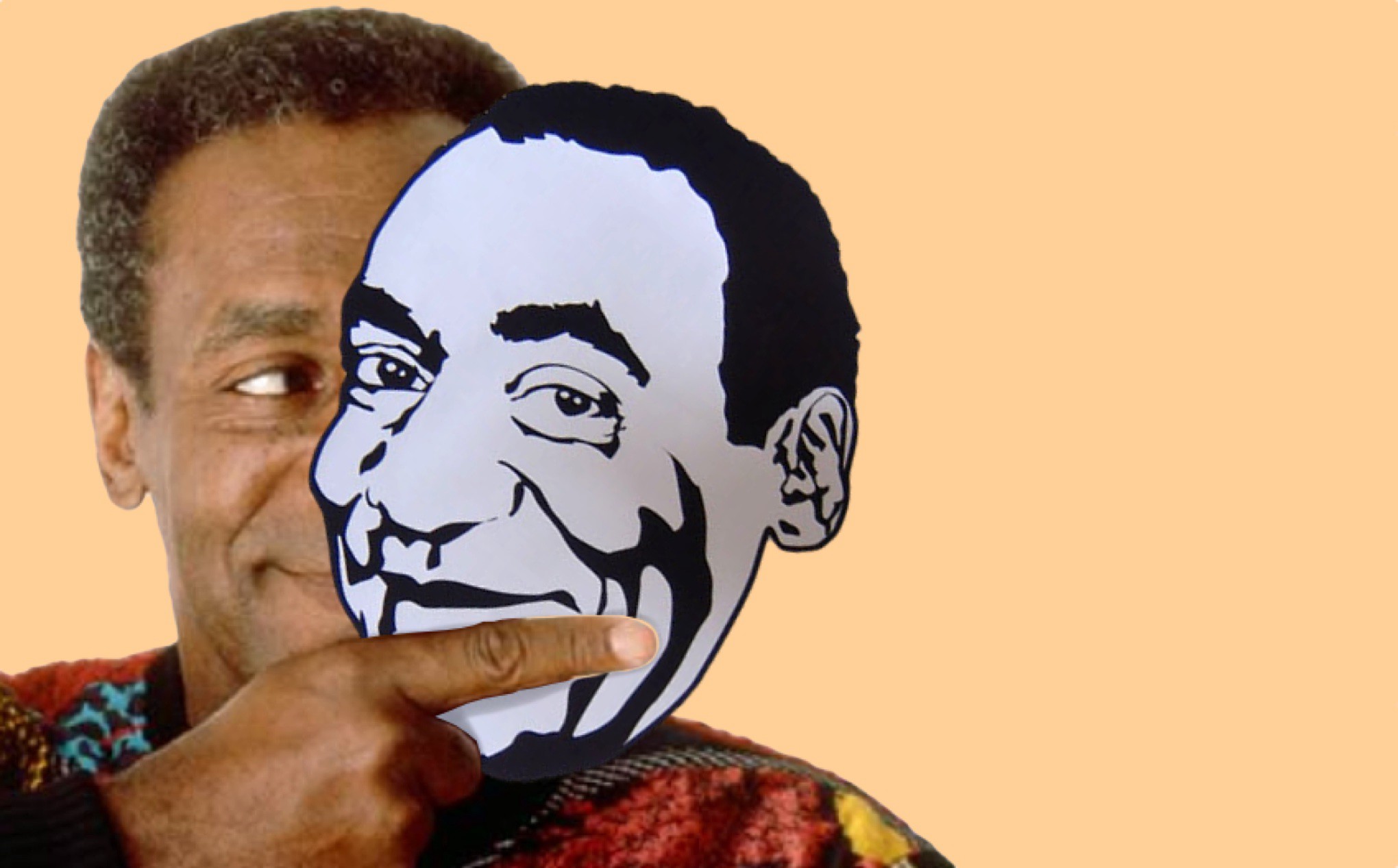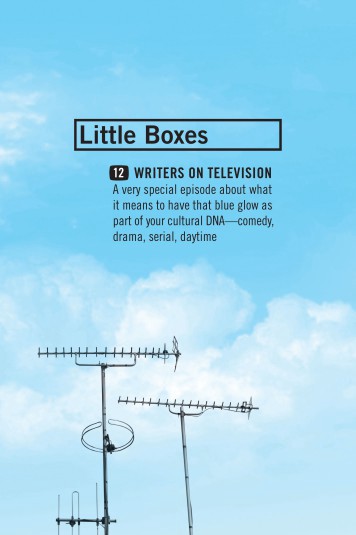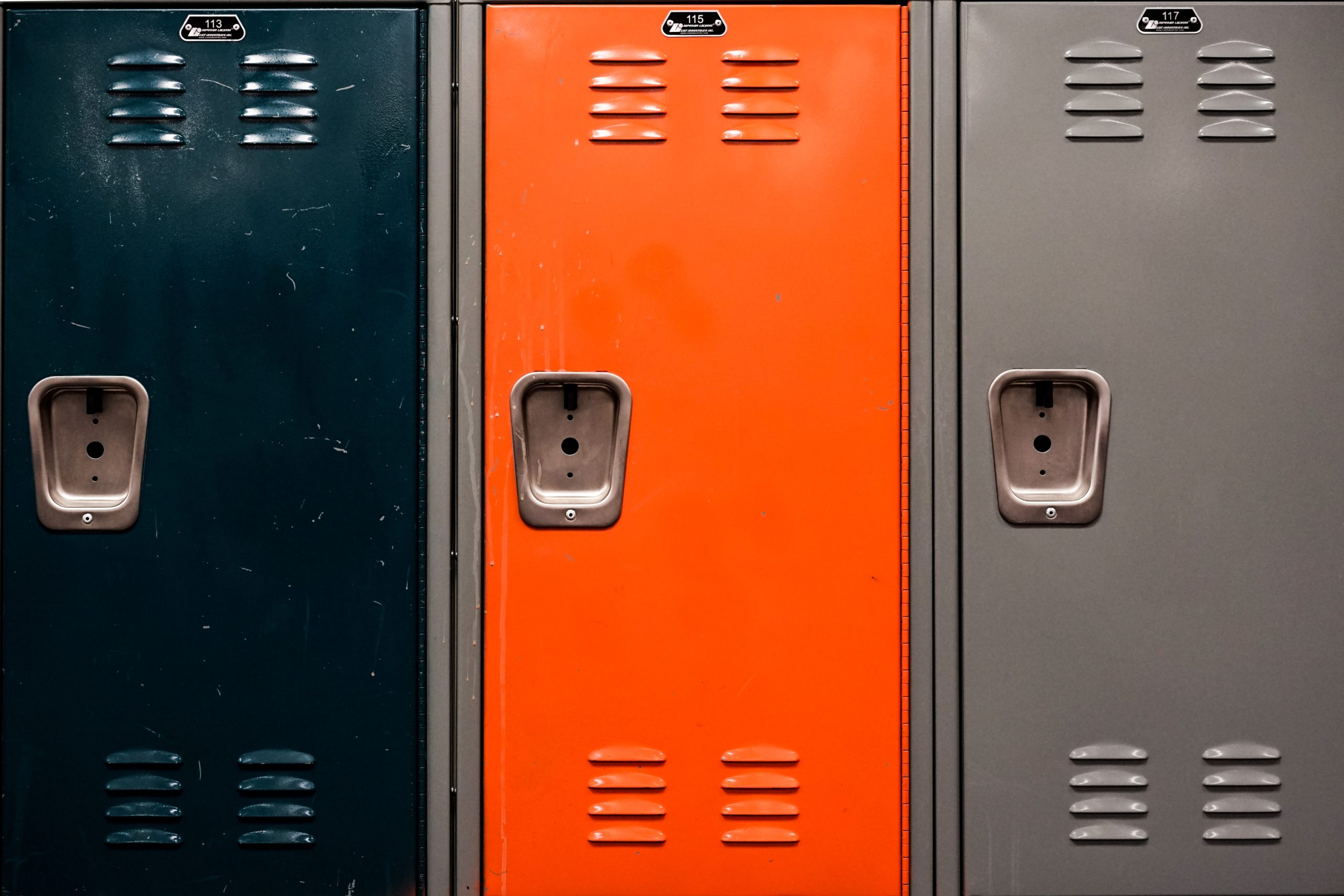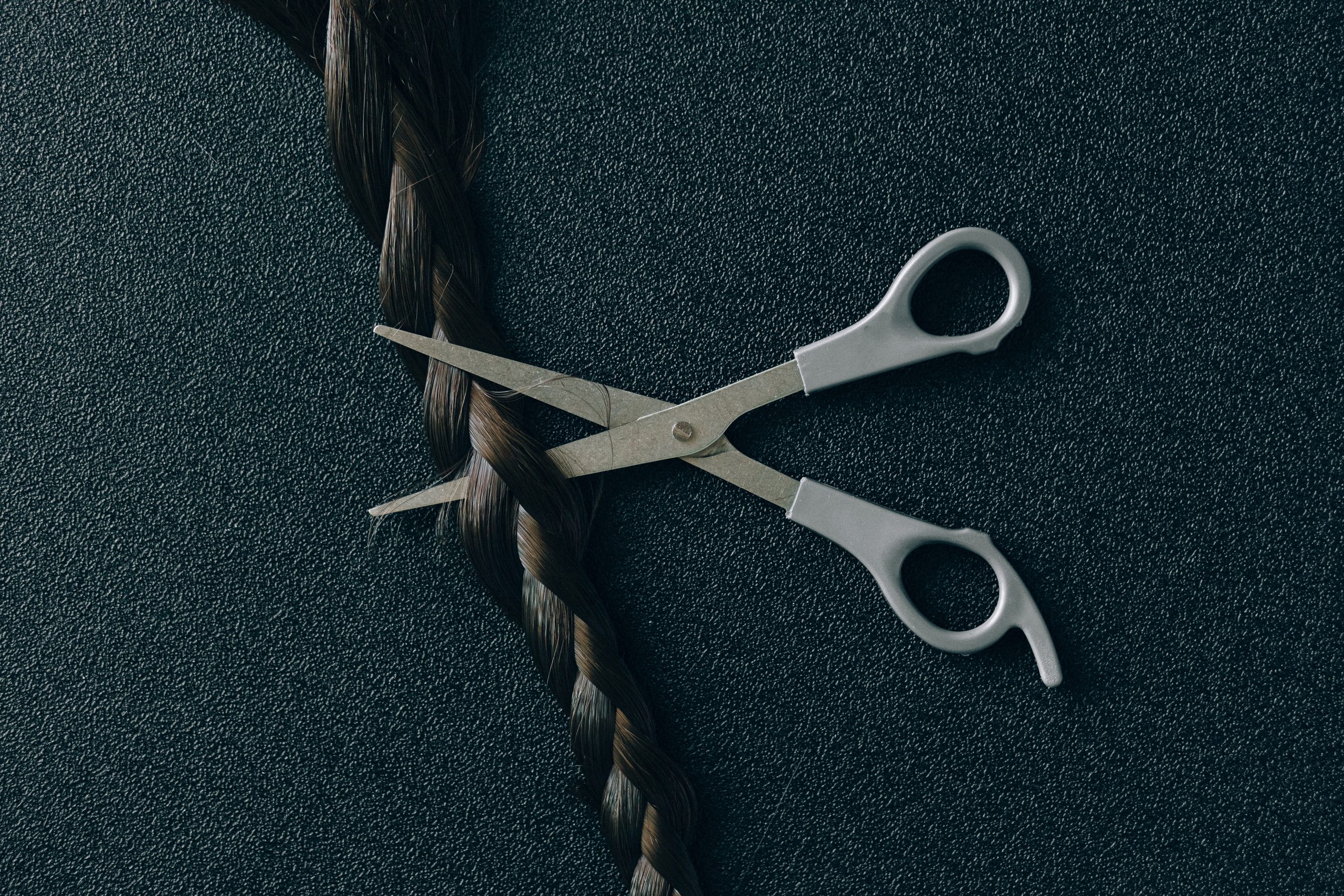Books & Culture
Cliff Huxtable Stole My Heart, Bill Cosby Broke It
He felt like a part of my family, but I only knew the character he wore as a mask

For a long time, when people asked me what television shows I liked, I had only one show from which to choose. As a kid, I wasn’t allowed television on weekdays, but my parents made The Cosby Show the sole exception. It was not only permitted; it was pretty much a requirement. I was more or less fine with this, or at least this is what I recall. Without fail, on Thursday nights at 8 p.m., Ganeshananthans assembled to watch Huxtables, and I loved it.
What made my parents choose Cosby as the exception to their rule about television, which they considered generally useless? Maybe it was that the Huxtables weren’t white, as my family is not; we are Tamil, and Sri Lankan, and American, not always in that order, and had no prayer of seeing a family demographically like ours on the small screen. (This is still true.) But we could throw our allegiance to Cosby’s fictional black family and see some things that we recognized. Maybe it was that Bill Cosby as Cliff Huxtable was a doctor, like my father; perhaps it was that lawyer Clair Huxtable was a strong and intelligent and opinionated and beautiful woman, like my mother. There is also more than a chance that we saw my brother in goofy Theo, the only Huxtable boy among five children. Or maybe I was the recognizable one: before I went to college with Felicity or high school with Dawson Leery, I was about the same age as the youngest Huxtable daughter, Rudy. (I suspect it would be a lie to say I was as incessantly cute. In fact, I was definitely jealous that I wasn’t.)
We could throw our allegiance to Cosby’s fictional black family and see some things that we recognized.
Compelling as all these factors were, though, none of them could have won my family’s viewing loyalty without the necessary, indefinable, and joyous chemistry between the show’s seven (!) leads. I was comfortable with the Huxtables’ safe, upper-middle-class, black professional identity, sure, but more than that, I was comfortable with their comfort with each other, a dynamic that to this day I have never seen rivaled in a sitcom. They were more than merely funny and physical; they were also unapologetically and intelligently weird and quick and particular. As a child, I had only a subconscious interest in the representation of people of color on screen; I did know, though, that I craved Huxtable level familiarity, humor, play, silliness, and wit. They felt, from their very first season, their very first episode, rich and real — wholly imagined.

The small intimacies and inside jokes of their family were irresistible on-screen. In Clair Huxtable I saw a wife and mother who let her partner lean on her, and I don’t mean metaphorically. A Huxtable daughter receiving a scolding was likely hearing from parents entangled at the foot of her bed like cats; Theo entering the living room might find Cliff and Clair lounging on each other on the sofa. Even as the dapper duo jointly chastises their children, the attraction between them remains magnetic and undeniable. In one episode, Theo gets in trouble with the police for riding in a car driven by a friend who only has a permit — but his parents are bickering, and he hopes this will help them forget to punish him. To his dismay, he returns home one afternoon to find them on the couch, clearly about to make out. Go upstairs, they coo at him, staring at each other in reconciliatory delight. We’ll be up to punish you shortly. Theo vanishes as instructed, and the couple discusses possible penalties while Cliff buries his nose in Clair’s neck. Cosby’s sparring partner, the indomitable Phylicia Rashad (née Ayers-Allen), is a notably gorgeous woman, but more importantly, the writers made the character of Clair smart and sexy. She wants her way and mostly gets it, while her husband makes eyes at her.
The house of the Huxtable family seems to rest on this foundation. The magic of Clair walking into her own living room after a long day at work, only to see Rudy upended on her father, both of them asleep! I have no idea how we ended up like this, dear, Cliff Huxtable says when she wakes him up, and it seems innocent and sweet. Don’t wake her up, Clair cautions him. Shaking his whole body, he demonstrates that it would be impossible to do so.
We trusted Cosby; I too could have fallen asleep there, believing completely that nothing bad would happen to me.
It’s impossible now, watching this show, to see it without the invisible but insistent subtitles of my jaded heart. When Cliff Huxtable whirls Clair around, I imagine a chorus of women next to her. When he emerges from his OB-GYN practice, I wonder at his profession, which involves closely examining women’s bodies even as it gives him the safe veneer of someone interested in the lives of children. When he polices his daughters’ behavior or hassles their dates, I am distinctly unamused. Some people may be able to separate the artist from the art, and I don’t know that I hold that against them. But I loved The Cosby Show because I found it intimate, and in the face of recent knowledge, that intimacy feels newly dangerous. As a kid watching The Cosby Show, I imagined my body in a space with their bodies — a safe and loving space. Today, as I rewatch, one person in that half hour seems sickeningly unsafe.
We know now that some women entering Bill Cosby’s real home say they were in danger. He has been accused of drugging and assaulting them. The intimacy I admired in the show as a child and thought a signifier of safety seems to have been turned to his advantage when he wanted to prey on women who sought his professional guidance and mentorship. Armed with his avatar, Cliff Huxtable, Cosby wasn’t silly; he was vicious.
Support Electric Lit & Get a Free Book: Become a Member!
Going back in time and television to think about why I loved this family so much, and why I felt they had been taken from me, I found a YouTube clip of that same conversation from the pilot between Theo and Cliff. Someone has reedited it so that it involves Theo asking his father for a definition of sexual assault. I couldn’t finish watching. I clicked away, away, away, so that I was no longer in Theo’s messy teenage bedroom, no longer watching his authoritative, kindly father at the foot of the bed. I thought of the women and their stories.
Family and dear friends: the people in whose homes or upon whose shoulders you might doze off in complete safety, and without them minding. (Even now I am given to these lapses at the houses of favorite pals.) I think too of the comforting proximity of my own parents, who let me doze on them, in cars, at concerts, on planes, at people’s houses, always gently chiding me to remove my glasses first so that I didn’t break them. To me, the physical familiarity that was such a vital part of the Huxtables’ undeniable fun looked dear and close and warm. I recognized it, perhaps because I often watched the show snuggled up on one parental shoulder or the other. And like the Huxtable children, when I was small I often looked for an excuse to clamber into my parents’ bed. On other sitcoms, children snoozing near parents are astonishing, and played almost exclusively for comic relief. I can’t wait until the kids are out of here, the parents say to each other. Or: Now we can have fun. But on The Cosby Show, a stray child diving into the bedclothes is routine, and Cliff and Clair obviously sometimes want their children there. The physicality of being related is present in every single scene.
The pair often counsels their offspring as my parents did, inviting them to have private conversations that give the young people a modicum of dignity, even when they misbehaved. Admonishments are often paired with reminders of love. Here in their implausibly spacious Brooklyn home is a set of siblings who kiss their parents hello, annoy each other, throw food at each other, borrow each other’s clothes with and without permission, and hug. In early episodes, youngest siblings Rudy and Vanessa are at each other’s throats; second sister Denise admonishes her mother to control her children when they begin a fight at the dinner table. But Vanessa and Rudy also wander around the Huxtable household with entwined fingers as they bother each other. Theo gets in hot water when playing circus with Rudy results in her getting injured. This friction of love on the show felt — and feels — genuine and electric. The rub of affection and argument made possible all sorts of tender and difficult and odd conversations. The Huxtables were not only blacker but also smarter and stranger and more specific than other television families. More believable. Watching them is like being invited to a private club.
The Huxtables were not only blacker but also smarter and stranger and more specific than other television families. More believable. Watching them is like being invited to a private club.
Their jokes are often deeply character-based. They favor family stories or mannerisms or imitations; they construct elaborate pranks, skits, and musicals. They can easily put on and shed other skins because their basic knowledge of each other is so strong. In one episode, Cliff imitates a car Denise covets; in another, he compares a woman giving birth to a toaster ejecting bread. But such hilarity wasn’t Cosby’s sole responsibility: the child performers with whom he surrounded himself would often rise to meet him in inspired performances that matched him silliness for silliness. Theo and Rudy are especially good at this. In the first Thanksgiving episode, Cliff mimics Julia Child while teaching Theo how to carve the turkey. Theo asks Cliff, “Why are you talking like that?” “I have no idea,” Cliff says in response. “It just makes me feel more secure when I’m in the kitchen. Now try it, my boy. And talk it through.” Malcolm Jamal-Warner as Theo doesn’t leave the invention to Bill Cosby; he responds by creating his own growly Muppet-like voice, a character he holds even when his mother and sister dip their heads into the room to find out what’s going on.
In the most famous scene from the pilot, Cliff explains to underachieving Theo why he will need to go to college by setting up a dummy life with a dummy job and a Monopoly salary. The money is quickly eaten up by rent, transportation, and food. (And taxes! As Cliff informs his son, the government comes for the regular people first.) Theo, who had said he wanted to be a “regular person,” ends up with no money at all. He later tells his father that he understands his parents’ point, but that they should understand his. They are successful professionals, but maybe he was just born to be a regular person and they should love him anyway because he’s their son.
The studio audience claps a bit at this line masquerading as deep truth. This is where most shows stop, on the feel-good moment. But Cosby went for feel better. Cliff breaks back in. Theo, he says, that is the dumbest thing I’ve ever heard, and you are going to try hard at school because I said so. Also, Theo, I love you. I brought you into this world, and I’ll take you out.
Later still, the whole family conspires to teach Theo a lesson along similar lines, but on an even grander scale. With Cliff, Clair, Vanessa, Denise, and Rudy in special roles — landlord, building owner, restaurateur, modeling-agency secretary — they perform a “real world” to give Theo an idea of what it’s like to pay rent. When he laughs at their performances and asks for his family, they withhold their familiar selves from him. With its swift elevation of children to powerful status, the episode highlights exactly how little they know about how the world works. Rudy, ridiculous in an old-lady outfit, owns several buildings, and won’t make any exceptions to allow her brother to rent an apartment. Cliff, playing the role of a building super, tells Theo — aghast at the sight of his bedroom bereft of furniture — that he needs a reference, and will have to get his own replacement bed and chairs. Theo slowly rises to the dare, enlisting his friend Cockroach to join the pretend world as his boss.
In another episode, Vanessa fights with classmates who call her a rich girl. “None of this would have happened if you weren’t so rich,” she wails at her parents. Would you be friends with someone who had more than you? Less than you? Clair asks. Yes, Vanessa says. Well, then it’s those girls who have the problem, Clair says, and honey, you are rich: you have a family that loves you. Thanks, Mom, Vanessa says, and then adds, But when I grow up I’m just not going to have so much money. That way my kids won’t have any problems.
She is ridiculous. I can see why my parents liked this show so much.
My mother, it turns out, does not remember her own Cosby Rule. Is her memory trying to disavow? I am surprised. Maybe, she said dubiously, when I asked her recently, years removed from that house, that television, that ritual. She used a skeptical tone of voice she reserves for humoring me and which I am only able to align with Clair Huxtable in retrospect. Sure, my mother said, when she realized I had checked out all the library’s available DVDs and brought them home for Thanksgiving. You brought what home? o.k., let’s watch again. And so we did, my parents and I, our memories of 1984–92 stained by over sixty allegations of sexual assault against Bill Cosby, a man we had once thought of as the head of a family much like ours. Once again, I put my head on my mother’s shoulder
I told her: I felt dirty even taking the DVDs out of the library. She laughed a little, just to show that she got it, because it wasn’t funny. We were watching Clair — I had perhaps almost entirely disappeared into watching Clair — when one of them said: She defended him. Didn’t she? She had. I don’t remember if it was my mother or my father, but I realized: they couldn’t forget either.
And So, We Commence by J. Robert Lennon
You have to understand: my father too has a kind face. My father too is a doctor. My father too would say How. Much. when we asked him for things sometimes, Cliff-like. My father too has an elasticity of spirit and expression; he can be silly even as he is stern and loving, and when I first watched Cliff, I did not know which father preceded the other. Now I am horrified that I ever thought of these two men in the same way.
Still, I am impressed by the show’s lasting power. It does not appear in reruns as often as it might were its star’s legacy not crumbling. It’s sad that a show that did such a terrific job of portraying the generational transfer of knowledge will be erased because many people will be too uncomfortable to show it to their children. I don’t blame them. But look: the physical and emotional closeness I loved in my first viewing was enabled, I suspect, by the cast’s balance of five women and two men. Can it be, after all this news, that Bill Cosby made a show about women and their power? Is it possible to see the show this way? So often, Cosby humor arises from Cliff and Theo playing fools to the older women’s competent straight “men.” The boys attempt to hide their hunger for things they shouldn’t have: food, money, markers of status. Clair in particular is excellent at catching her husband, who is supposed to be as good as her and clearly isn’t. She is in control; her daughters are her avatars. Sondra, the oldest child, is an academic high achiever like her mother and goes to Princeton; Denise has her mother’s creativity, vivacity, and beauty; Vanessa possesses Clair’s keen sense of ambition and justice; Rudy wields a hefty dose of her mother’s charm, comic timing, and skill as a performer (in performance and social situations). The women are frequently powerful, competent, smart, and stylish, while the men are more often than not gentle jesters with aspirations to the same kind of discipline.
Cosby made me his ardent viewer by showing a kind fatherly figure, one who deployed his authority and his wealth to help and protect his family — when in his real life he used those things to endanger and lie to people.
Or is this feminist reading simply my desire to redeem the show in the wake of the allegations about its star? Bill Cosby was ostensibly the sun around which the other characters orbited, even though he had a real rival for attention in Phylicia Rashad. The family was modeled on Cosby’s stand-up, which was modeled on his own family. Cosby made me his ardent viewer by showing a kind fatherly figure, one who deployed his authority and his wealth to help and protect his family — when in his real life he used those things to endanger and lie to people. Many of his accusers relate experiences that fall outside the statute of limitations for prosecution; there is one exception for which he recently stood trial. Horribly, it ended in a mistrial. A number of the stories from Cosby’s accusers include moments when Cosby allegedly took advantage of young women by leveraging his status as a mentor or a successful man with money and power. Knowing this, it is hard to watch him lecture the young actors on the Cosby set about how to conduct themselves responsibly with money. Be in the real world, he tells them. They take his advice and grow up.
Their “father” is the one unable to do so. Now, in the wake of the mistrial, Cosby seeks to resume his role as a giver of life advice: he plans a national series of talks aimed at helping others to avoid sexual assault charges. That reedited talk in Theo’s bedroom, gone even more haywire.
I, in turn, once the faithful viewer, seem to have outgrown my television. The Cosby Show, the family-friendly and yet still willfully weird creation of Dr. William H. Cosby Jr., Ed.D., was the number one show in America for five straight years. Once upon a time, watching it made me feel comfortable, smart, and included. Of course, that’s no longer true. And nothing I’ve watched since has quite matched it.
A few years ago, I stopped watching television almost entirely. I had two televisions, and they sat in my apartment, big and dark and blank. I gave one away when I moved. The second I abandoned in an alley. It was the television I’d inherited, a television I could afford. I let it go and left it for someone else to pick up. And then for about a year, I had no television. I didn’t miss it. I did not replace it until yesterday, when someone I trusted, upon whose shoulder I’ve slept, gave me an old television, and I thought, well, maybe I’ll try again.
“Lovewatch, Hatewatch (or, ‘I Brought You into This World and I’ll Take You Out’)” is reprinted by permission from Little Boxes (Coffee House Press, 2017). Copyright © 2015 by V. V. Ganeshananthan.








